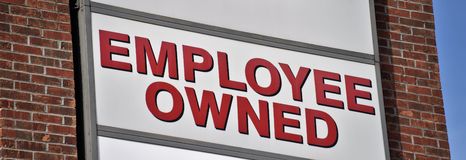National Survey Question Reveals Widespread Consensus on Employee Ownership
by Karen Kahn

The Rutgers Institute for the Study of Employee Ownership and Profit Sharing announced the results of a national survey question included in this year’s General Social Survey (GSS), at the annual ESOP Association National Conference, May 24. Nearly three quarters of respondents said they would rather work for an employee-owned company than for a company owned by shareholders or the government.
“Americans disagree about a lot of things, but this is not one of them,” said Joseph Blasi, director of the Rutgers policy institute. “Democrat or Republican, female or male, black or white, union or non-union, a majority of respondents said they prefer to work for a company with employee share ownership. It is rare to find such a national consensus on anything.”
47 percent of private sector employees (59 million) have ownership or profit shares where they work.
The survey, administered by the National Opinion Research Center at the University of Chicago, went to 1500 working Americans. The consensus among respondents was striking:
- 72 percent said they would prefer to work for an employee-owned company over one owned by investors (19 percent) or the state (9 percent).
- Across the political spectrum, Democrats (74 percent), Republicans (72 percent), and Independents (67 percent) expressed a preference for companies with employee share ownership.
- Among voters in the 2016 presidential election, 76.5 percent of Trump voters and 75.5 percent of Clinton voters preferred employee share ownership.
The Rutgers analysis of the GSS data found 47 percent of private sector employees (59 million) have ownership or profit shares where they work–an increase from 45 percent (52 million) in 2014. These numbers overlap but indicate a significant proportion of U.S. workers have access to some level of share ownership. The survey data indicates that 25 million Americans own company stock, 11 million through an ESOP and 14 million with other forms of stock ownership. The value of these shares varies considerably, but according to the Institute’s press release:
- The average worker who holds company stock has $75,205 in shares.
- For ESOPs, the average worker has a $134,000 stake.
- Average annual profit sharing and gain sharing bonuses are just over $13,000.
- Close to 20 percent of all blue collar, clerical, and sales workers own some company stock.
Bipartisan support for employee share ownership was evident last year, when Congress enacted the Main Street Employee Ownership Act (MSEOA), which makes it easier for retiring business owners to transfer ownership to employees through an ESOP, as part of the National Defense Reauthorization Bill. As the Democratic campaign for the presidential nomination heats up, increasingly candidates are proposing policies that would make firms more accountable to their employees and the communities in which they do business. Both Elizabeth Warren and Bernie Sanders have been touting proposals to make capitalism work for all. Warren’s proposal reserves board seats for worker representatives, giving workers a formal role as business stakeholders; Sanders proposes that firms set aside shares in a trust for workers, who would then receive dividends on those shares. Recent data shows that employee ownership significantly improves the financial security of low-wage workers, including women and people of color.
Karen Kahn provides communications consulting and editorial support for Fifty by Fifty.
To follow Employee Ownership News, subscribe to the Fifty by Fifty newsletter or follow us at Medium.
